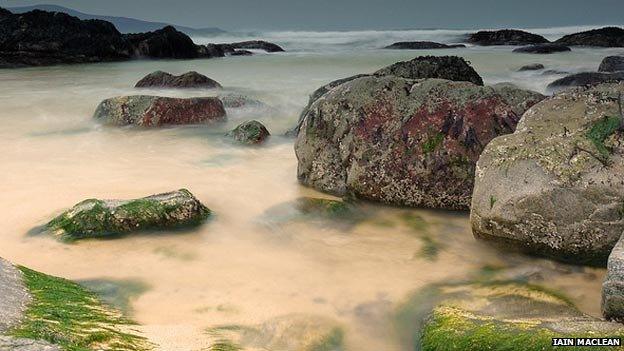Rise in isles seaweed harvesting may 'alter habitats'
- Published

Researcher said the isles' seaweed was diverse and important to local communities
An increase in the scale of seaweed harvesting on the Western Isles may affect coastal ecosystems, according to a Crown Estate-commission report.
Researchers said "considerable quantities" of the plant were harvested already, but this appeared to be having a "quite low" impact.
A rise could "alter the dynamics" of ecosystems and make conditions more favourable to invasive species.
The report said the islands had a rich diversity of native seaweeds.
It also said it was an important resource for island communities.
Juliet Brodie and Jo Wilbraham carried out the research for the Crown Estate, which owns large areas of coastline and seabed around Scotland.
In their report the scientists said: "This survey provides a new baseline for seaweed diversity for the Outer Hebrides, a region well known for its seaweeds and where there is great interest in them both for their biodiversity and as a valuable resource.
"Considerable quantities of fucoids are currently harvested, but these are collected from low seaweed diversity areas and the impact of harvesting on the seaweed diversity appears to be quite low.
"If the scale of harvesting increases, then it will be necessary to monitor the impact on diversity. An increase in the scale of harvesting has the potential to alter the dynamics of the ecosystem."
Seaweed is harvested to be put to use in a variety of ways.
They include using it as a soil fertiliser, for the making of livestock foods and in the production of a gum used for dental impression material.
Elsewhere seaweed is also being grown for the manufacture of biofuel.
- Published1 July 2013